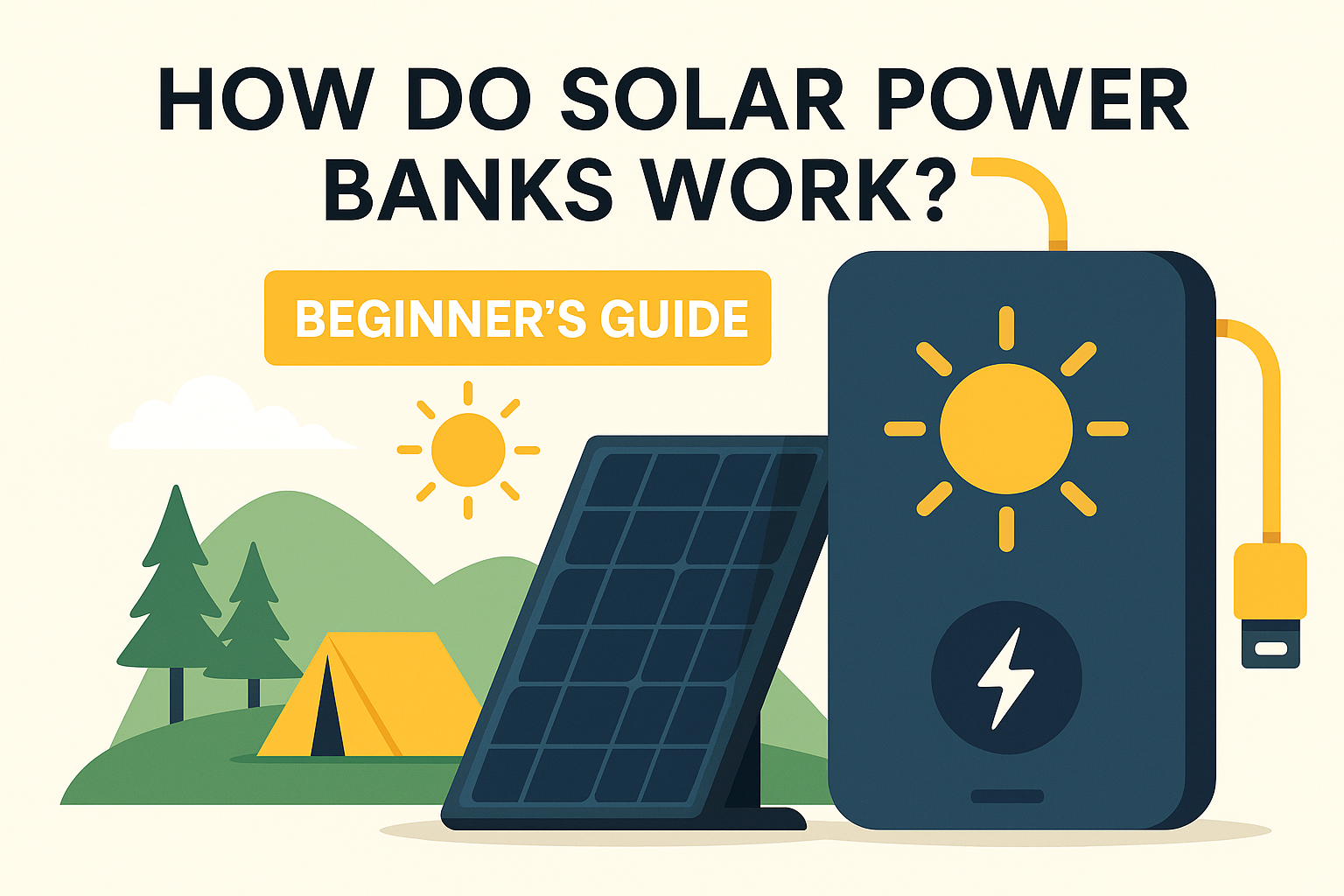How do solar power banks work for camping
Solar power banks have become an essential tool for modern campers, hikers, and off-grid travelers. They offer a reliable way to keep devices charged when traditional power sources aren’t available — but how do they actually work?
In this beginner’s guide on how do solar power banks work, we’ll break down the key components and functionality of solar power banks in simple terms, along with their pros, limitations, and best practices for camping use.
What Is a Solar Power Bank?
A solar power bank is a portable battery pack that can be charged using sunlight. Unlike regular power banks that rely solely on USB charging, solar banks include solar panels that absorb sunlight and convert it into usable electricity. This makes them ideal for remote locations where electricity access is limited or unavailable. So, how do solar power banks work?
Most models include built-in USB ports, LED flashlights, rugged casing, and waterproof designs — all tailored for outdoor environments.

How Do Solar Power Banks Work (Explained Simply)
Let’s break the process down into three simple steps:
1. Solar Panel Charging
Solar panels on the device collect sunlight and convert it into DC electricity using photovoltaic (PV) cells. The more efficient the solar panel, the faster this process works — especially in direct sunlight.
2. Battery Storage
The electricity generated by the solar panel is stored in a rechargeable internal battery, typically lithium-ion. This stored energy can then be used to charge your devices even after the sun goes down.
3. Power Output to Devices
When you connect your phone, headlamp, GPS, or other small devices to the power bank via USB, it delivers power from its internal battery — just like any regular charger.
Tip: Most solar power banks can also be charged via USB at home before your trip, making them hybrid and more dependable.
Benefits of Using Solar Power Banks While Camping
They’re a game-changer for campers and backpackers because of how do solar power banks work for camping
- Energy Independence: You don’t need to rely on electrical outlets or backup generators.
- Eco-Friendly: Harnessing renewable solar energy reduces your carbon footprint.
- Emergency Use: In remote areas, having power for a phone or emergency light can be lifesaving.
- Portable: Designed for outdoor use, they’re compact and lightweight enough to carry in a backpack.
Real-World Limitations You Should Know
While solar power banks are incredibly useful, they’re not without limitations — which is why it’s important to understand exactly how do solar power banks work for camping.
- Slower Solar Charging: They take several hours — or even days — to fully charge by sunlight alone.
- Weather Dependent: Cloudy or shaded conditions reduce charging efficiency significantly.
- Limited Capacity: Most are designed for small devices like phones or flashlights, not laptops or power-hungry gadgets.
Tips for Using Solar Chargers Effectively Outdoors
To get the most from your solar charger while camping, it’s helpful to understand how do solar power banks work for camping
- Pre-Charge Before Departure: Always charge the power bank fully using USB before leaving home.
- Position in Direct Sunlight: Set it on a rock, hang it on your backpack, or place it on a stand to maximize sunlight exposure.
- Avoid Overcharging or Overheating: Store it in shade when fully charged, especially during peak heat.
Solar vs Regular Power Banks for Camping
| Feature | Solar Power Bank | Regular Power Bank |
|---|---|---|
| Charging Method | Sunlight + USB | USB only |
| Best For | Off-grid use, camping | Day-to-day city use |
| Portability | Slightly heavier | Often more compact |
| Renewable Energy Use | Yes | No |
| Performance Indoors | Limited | Excellent |
In short, if you’re planning an outdoor adventure, a solar power bank is a better long-term companion.
Related Articles
- Best Solar Power Banks for Camping in 2025
- Coming Soon: Solar vs Regular Power Banks – Which One Should You Take Camping?
- Coming Soon: Top Lightweight Solar Chargers for Hikers in 2025
Final Thoughts
Understanding how do solar power banks work is the first step to making a smart, reliable choice for your outdoor gear. While they may not replace traditional chargers in every situation, they offer a sustainable, flexible power solution when you’re exploring the great outdoors.
If you’re planning a camping trip this year, consider investing in a high-quality solar power bank — your future self (and your phone) will thank you.

